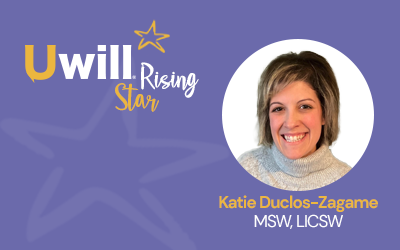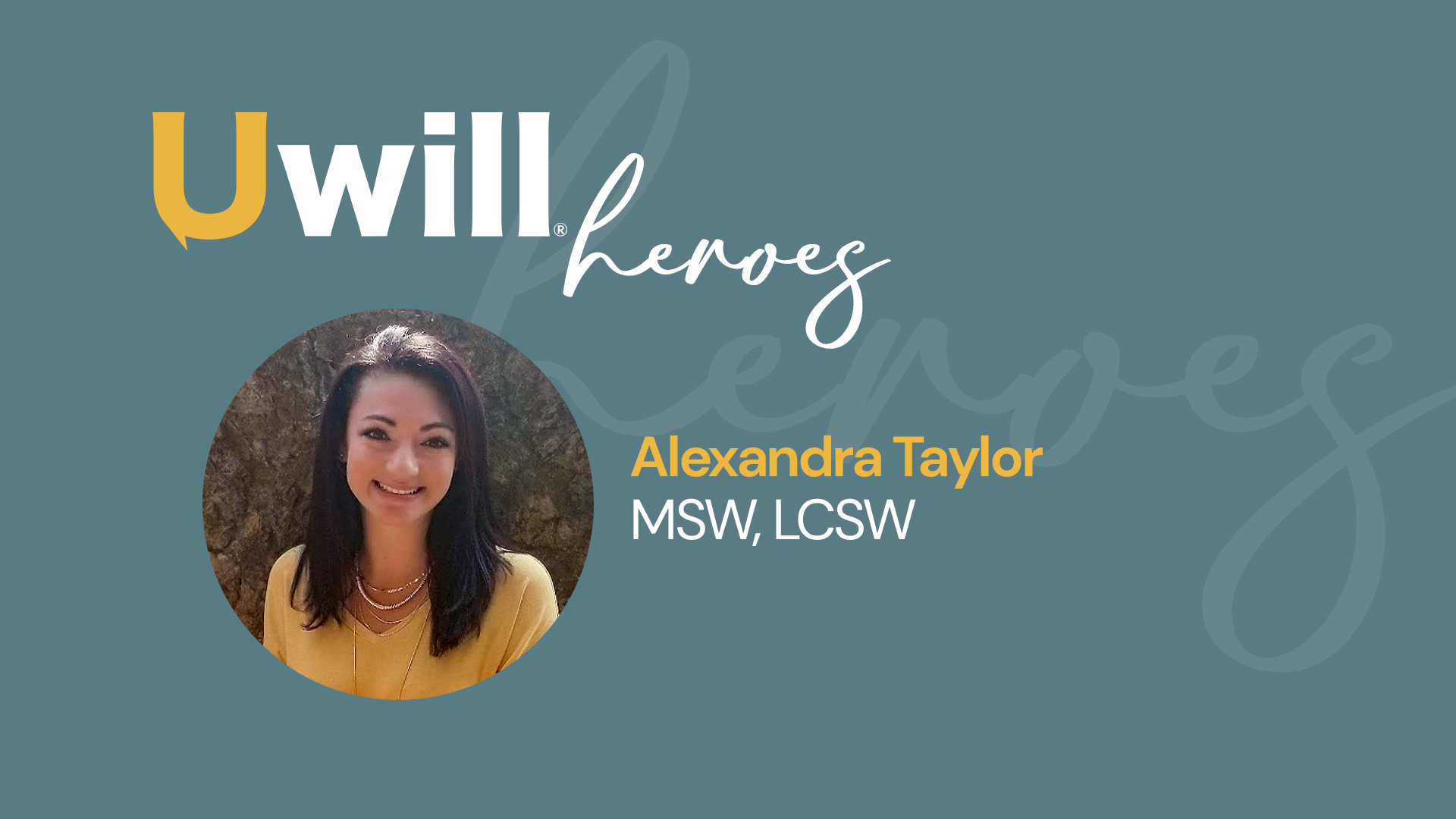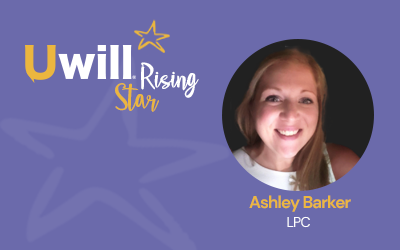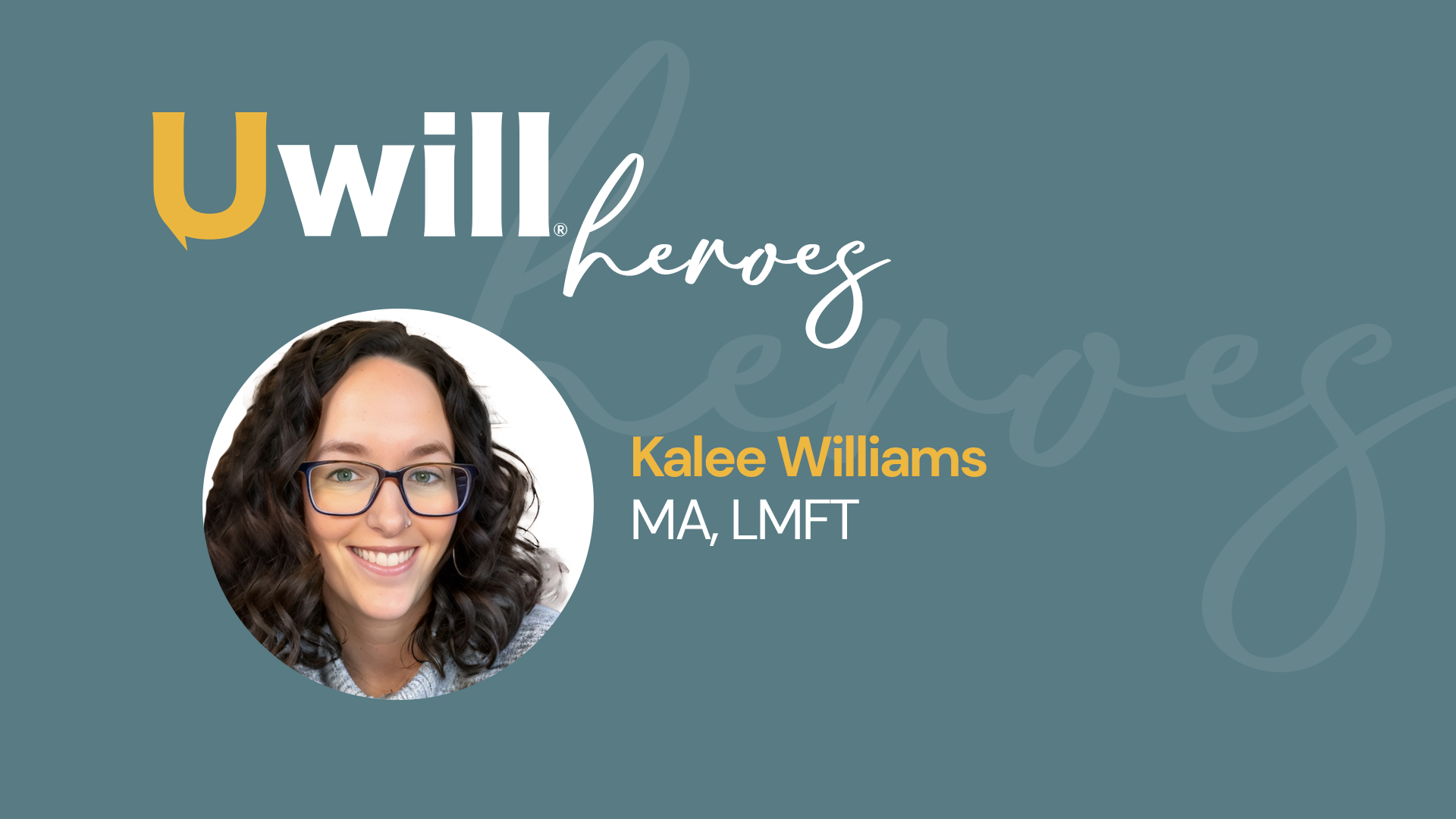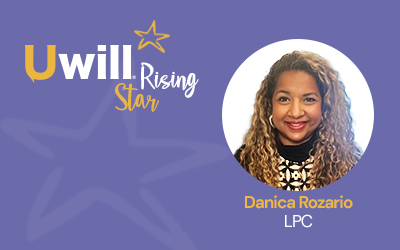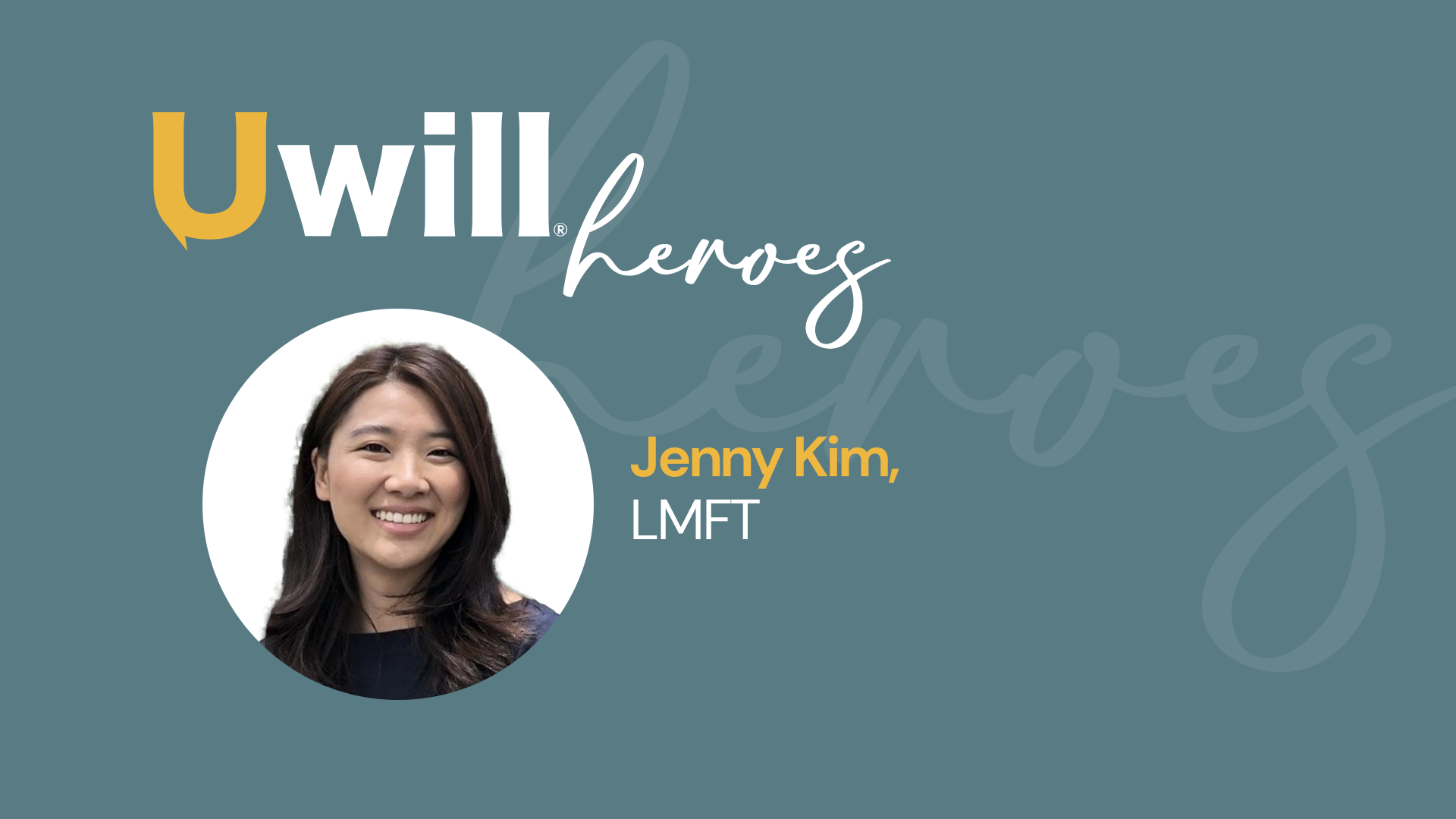Taking the Headache Out of Dealing with Health Issues: Addressing the Mental Toll of Student Illness
According to Inside Higher Ed, almost three-quarters of college students say their physical health and wellness negatively impact their ability to focus, learn, and do well in class. Furthermore, as of fall 2024, almost 40% of college students report being diagnosed with a cold, virus, or respiratory illness. Bugs like upper-respiratory infections, colds, and even more serious conditions such as mononucleosis and meningitis thrive on college campuses due to the close quarters of dorm life, shared bathrooms, and constant in-person socialization. With students living, learning, and socializing in such close proximity, even a minor virus can spread like wildfire and affect huge portions of the student body. These outbreaks not only disrupt academic performance but also create stress and anxiety, especially for students without easy access to healthcare or support systems.
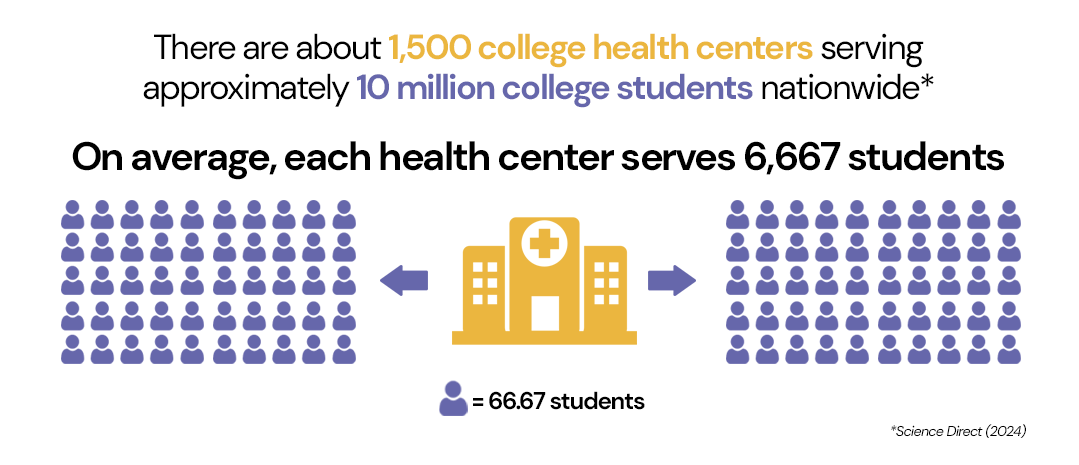
Physical and mental health are deeply connected. Along with the challenges of managing physical illness, many college students are simultaneously struggling with their mental health, particularly since the COVID-19 pandemic. According to LSU Online, when either of the two is out of balance, the impact on their ability to concentrate, stay energized, and persevere through obstacles is compromised. Additionally, rates of chronic absenteeism, defined as missing at least 10% of school days in a year, have risen from around 15% pre-pandemic to nearly 30% over the past few years. When students are sick, they miss class, exams, and social obligations, exacerbating existing stress and anxiety. Rigid attendance policies and rescheduling exams can negatively impact a student’s grade, adding to the mental toll that being sick can have on a student.
“Students sometimes feel like they have to jump through administrative hoops or choose between their health and academics,” says Stephanie Black Dos Santos, LCSW, and Manager of Clinical Affairs at Uwill. “That trade-off can make students feel hopeless, isolated, and worthless.”
Facing that trade-off alone while ill without the comfort and care of parents or loved ones who may have handled their medical care while they were growing up is not something that all college students are emotionally prepared to do.
“For a lot of students, it’s the first time they’re away from home, and so they are learning to manage their schedules, take their medications, and make appointments, all without family support,” says Black Dos Santos.
Students face a number of obstacles on college campuses when they are sick. A 2024 Science Direct study revealed that there are about 1500 college health centers serving approximately 10 million college students nationwide. These numbers are overwhelming and suggest that many campuses are not prepared to keep up with the health demands of students. College health centers often have limited hours of operation, leaving students few options regarding access to care during evenings or weekends.
Further, visiting an off-campus clinic or urgent care facility can be especially difficult since many students struggle to find reliable transportation, navigate unfamiliar insurance policies, or schedule an appointment. These obstacles highlight how difficult it can be for students to receive immediate and accessible care after hours, which is often when they need it most.
Being sick in college can take a toll on a students’ mental health, and for those already struggling with emotional challenges, getting sick can be the breaking point. The added pressure of navigating healthcare systems alone can overwhelm students, not to mention managing missed classes and keeping up with other responsibilities. When illness disrupts both academics and emotional well-being, students often struggle to bounce back without accessible, reliable care.
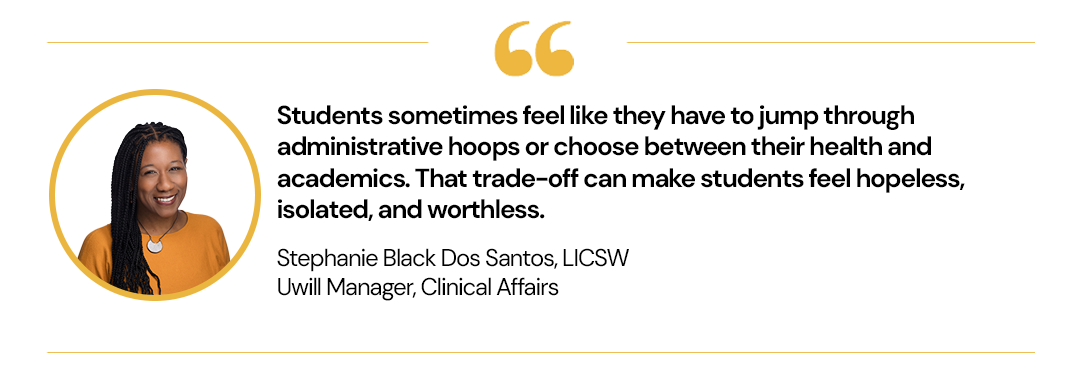
How Uwill Can Help
Uwill allows college students to meet with a licensed therapist at a time convenient for them. Often, students struggle to find time to prioritize their mental health, but Uwill makes it easy to find and receive high-quality care at a time that works for them, including nights, weekends, holidays, and school breaks. Within five minutes, students can register online, choose their preferences, and speak with a licensed counselor through a video call, phone call, chat, or messaging. Further, Uwill’s 24/7/365 crisis connection can support students and keep them safe while speaking with a licensed counselor trained in trauma.
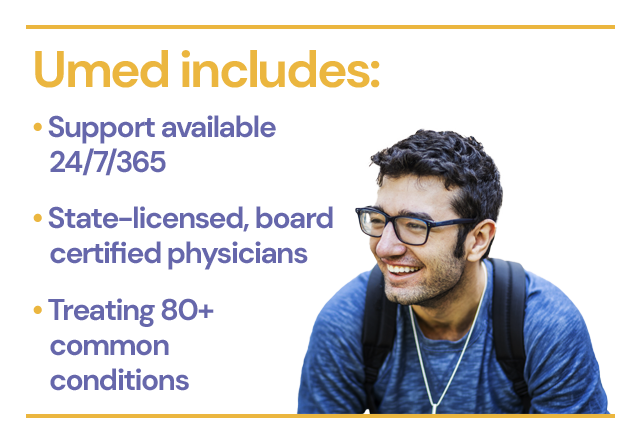 Umed is Uwill’s on-demand medical solution that offers state-licensed, board-certified physicians available 24/7/365 to treat more than 80+ common conditions. Whether a student has a fever or an allergy flare-up, Umed’s team of physicians is available and ready to help them feel better quickly. These medical providers follow CDC guidelines for best practices in prescription management to ensure students receive high-quality care. With immediate appointments available, Umed removes common barriers such as insurance, referrals, or long wait times, allowing students to find support that meets them where they are, both literally, location-wise, and emotionally. Students can book an appointment from anywhere, whether they are on campus, at home, or traveling. In addition, support is available during nights, weekends, holidays, and school breaks, ensuring students have access to care around the clock.
Umed is Uwill’s on-demand medical solution that offers state-licensed, board-certified physicians available 24/7/365 to treat more than 80+ common conditions. Whether a student has a fever or an allergy flare-up, Umed’s team of physicians is available and ready to help them feel better quickly. These medical providers follow CDC guidelines for best practices in prescription management to ensure students receive high-quality care. With immediate appointments available, Umed removes common barriers such as insurance, referrals, or long wait times, allowing students to find support that meets them where they are, both literally, location-wise, and emotionally. Students can book an appointment from anywhere, whether they are on campus, at home, or traveling. In addition, support is available during nights, weekends, holidays, and school breaks, ensuring students have access to care around the clock.
College students are learning so many new things in their time away from home, and Uwill is here to offer the support and care they need to thrive in every aspect of their health and wellness.
If you are looking for help:
If you are looking to bring Uwill to your organization:
Share this:
![]()
Uwill is a Teletherapy Educational Partner of NASPA
![]()
Uwill is the Exclusive Teletherapy Education Partner of the Online Learning Consortium
Resources

Copyright © 2025 Uwill | 1075 Worcester St, Natick, MA 01760 | 833-99-Uwill

